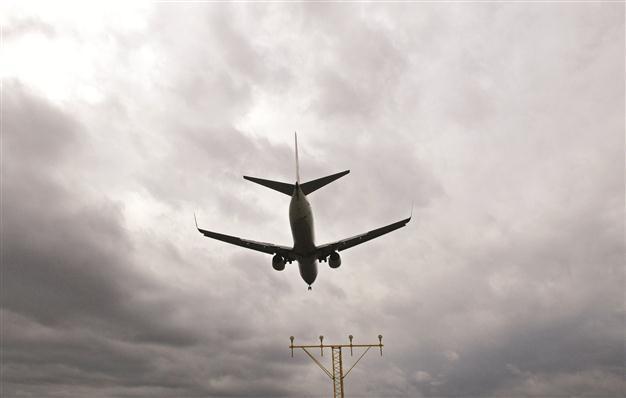EU court upholds airline carbon law
LUXEMBOURG/BRUSSELS - Reuters

This May photo shows a Boeing 737 aircraft ready to land at Arlanda airport, north of Stockholm, Sweden. AFP photo
Europe’s highest court gave unreserved backing on Dec. 21 to an EU law to charge airlines for carbon emissions on flights to and from Europe, a decision likely to escalate tension with trading partners, especially the United States.The court ruled against a group of U.S. airlines that had challenged a law requiring that all airlines flying to and from European Union airports will have to buy permits under the EU’s emissions trading scheme from Jan. 1. The initial cost is expected to be minimal, but would rise to an estimated 9 billion euros ($11.8 billion) by the end of 2020.
“Application of the emissions trading scheme to aviation infringes neither the principles of customary international law at issue, nor the open-skies agreement,” the European Court of Justice (ECJ) said.
Wednesday’s ruling was expected after a senior adviser to the court issued a preliminary opinion in October that found the EU legislation did not infringe other states’ sovereignty and was compatible with international accords.
EU Climate Commissioner Connie Hedegaard, for whom the carbon trading scheme is one of the main weapons to combat climate change, was among the first to welcome the decision.
“After a crystal-clear ruling today, the EU now expects U.S. airlines to respect EU law as the EU respects U.S. law,” she said. “We reaffirm our wish to engage constructively with everyone during the implementation of our legislation.”
The U.S. government, which has warned it could take “appropriate action” if the EU did not reconsider this aspect of the Emissions Trading Scheme (ETS), said it was dismayed by the ruling.
“We continue to have strong legal and policy objections to the inclusion of flights by non-EU air carriers in the EU ETS,” Krishna R. Urs, deputy assistant secretary for transportation affairs at the U.S. State Department, said in statement.
The EU law allows for “equivalent measures,” meaning that incoming flights to Europe would be exempt if the nation from where they came had measures in place to offset the international emissions.
Airlines initially would be required to pay for only 15 percent of the carbon they emit and would be allocated free allowances to cover the other 85 percent.
From 2013 to 2020, airlines are expected to buy around 700 million permits, according to Thomson Reuters Point Carbon data.
















